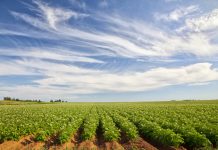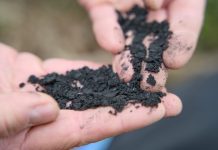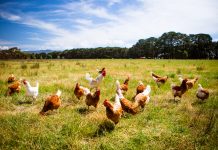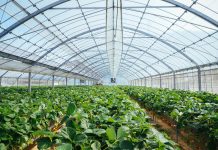Evogene’s Ag-Seed Division has been awarded a prestigious €1.2 million grant from the EU Horizon Program to develop innovative oil-seed crops with high carbon-dioxide assimilation and enhanced drought tolerance
The project, known as Crop4Clima, aims to create oil-seed crops that can assimilate 60% more carbon dioxide from the air while requiring 20% less water intake than crops grown using standard agricultural practices.
The initial focus of the project is on canola and rapeseed seeds, which have significant commercial value for the following industries:
- Food
- Animal feed
- Sustainable energy industries
Crop4Clima aims to reduce global warming and improve environmental sustainability
By developing crops with high CO2 assimilation and drought tolerance, Crop4Clima aims to support efforts to reduce global warming and improve environmental sustainability while also boosting agricultural productivity and conserving scarce water resources.
The project is part of Horizon Europe’s highly competitive and prestigious EIC Transition program, which aims to establish businesses addressing climate challenges and develop resilient and environmentally sustainable crops that can better address climate change.

The project leverages Evogene’s innovative synthetic biology technologies
Evogene is collaborating with the Max Planck Society, Germany’s leading basic research institution, IN Society, an Italian not-for-profit SME that analyzes the impact of emerging technologies on society; and Agrobioinstitute, Agricultural Academy, Sofia, Bulgaria.
The project leverages Evogene’s innovative synthetic biology technologies, along with multidisciplinary skills in computational biology, chemistry, microbiology, and plant physiology.
The Max Planck Institute for Terrestrial Microbiology is also involved in the project, conducting research on the molecular functions of environmental microorganisms and their potential use for synthetic biology.
Overall, the Crop4Clima project has a budget of €2.5 million and is expected to be executed over 32 months.
The successful completion of a proof-of-concept in 2021 as part of the FutureAgriculture Consortium, which demonstrated the potential for increased agricultural productivity and environmental sustainability, led the Horizon 2020 reviewers to recommend continuing funding for the project’s development as a significant measure to reduce climate change.
Using synthetic biology for a sustainable future
Professor Dr. Tobias Erb, Director of the Department of Biochemistry and Synthetic Metabolism at Max Planck, comments:
“Our research on basic design principles of microbial metabolism enabled us to engineer improved carbon-dioxide uptake mechanisms.
“The joint project with Evogene is an important part of our efforts to create a sustainable future with synthetic biology.
“By engineering novel metabolic pathways, we aim to enable plants to make better use of cellular resources, thus saving fertilizer and water and reducing the release of carbon dioxide in agriculture.”
Science translated into socially relevant innovation
Laura Martinelli, CEO of IN Society, added:
“Crop4Clima is a perfect example of science translated into socially relevant innovation, as it will enable agriculture to cope with the changing demands of climate change.
“Since its inception, we have supported this promising innovation as part of the FutureAgriculture project.
“We are excited to play a key role in this new phase and contribute to its success by performing the environmental and economic assessment and facilitating stakeholder adoption of the technology.”
‘We are proud to lead the development of these oil-seed crops’
Eyal Ronen, EVP of Business Development of Evogene, concluded:
“We are proud to lead the development of these oil-seed crops with unique characteristics, supporting sustainability goals.
“The proof of concept is further validated by our consortium winning the prestigious European Horizon grant, whose goal is sustainable agriculture.
“We are also excited to work in this consortium with the Max Planck Institute for Terrestrial Microbiology, a global scientific leader in environmental and synthetic biology.
This win reflects our expertise in synthetic and computational biology
“This win reflects our expertise in synthetic and computational biology and our ability to develop innovative new products.”











